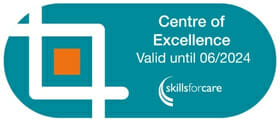Following last week’s post about the digitisation of social care records and the guidance from CQC and Skills for Care, I wanted to circle back to the regulations; specifically Regulation 17 and something a colleague mentioned recently about quality assurance.
In our Care Certificate answers (which can be found here), we outline that the Care Certificate is not mandatory, but the principle of competence very much is, but what has that got to do with Regulation 17?
The CQC link for the Regulations is here, but three of the key elements are below:
- Must assess, monitor and drive improvement in the quality and safety of the services provided.
- Must securely maintain accurate, complete and detailed records relating the employment of staff.
- Must provide a written report to CQC setting out how they assess, monitor and improve the quality and safety of their services.
One of the activities in Module 5 of Lead to Succeed includes looking at the CQC KLOEs, prompts and rating characteristics and the words that CQC uses to describe good and outstanding providers, so I find it interesting the way CQC uses the word MUST. “Must” is unambiguous, it is not should, or ideally; it is clear that this is what CQC requires.
Firstly, providers must assess… the quality and safety of the service. The safety and quality of any service can only be the people delivering the service, therefore it is vital the assessment of knowledge, understanding and practice forms part of systems and processes, which is why Click is built the way it is – it is not just eLearning and a tick box exercise.
Secondly, must securely maintain staff records. What observations were carried out when and what was the outcome? Now whilst Click has a built-in Training Matrix, each green square for a completed Care Certificate is much more than just the certificate; it is a portfolio of robust evidence (which is what CQC is looking for and also something we have discussed before today).
Given last week’s discussion, if you are still using paper-based workbooks and your managers have plenty of spare time to mark them (yes, I am being facetious) then you have to ask these questions:
- How do we keep paper workbooks secure?
- How would we share these with our inspector digitally (i.e. the future version of inspection)
Lastly, how should providers assess, monitor and improve the quality and safety. Essentially, what CQC is outlining, alongside Skills for Care, is that assessing, monitoring and improving is a continuous process; it is not a training attendance tick box exercise – “it’s OK everyone is in date”, kinda thing.
So what has all this got to do with the Care Certificate?
Good question. I do think there is a generally accepted feeling that the Care Certificate is the induction and when it is done, it is done and we needn’t to go back to it. I have also had many conversations with providers who have shared that the “Care Certificate has all this extra competence evidence stuff in it”. There’s still a lot of confusion around how you do this “competence and observations” stuff, particularly during lockdown. So, it has been great to hear from our customers that Click has enabled them to carry on with their Care Certificate, with barely a pause.
What next? The Skills for Care mandatory training guidance (all the stuff beyond induction) is very clear:
“Assess knowledge and competence at least annually”
So, what we can see here is that Skills for Care and CQC are saying the same thing: assessing and measuring is a continuous process.
Perhaps it is time for a change?
The Care Certificate is not a set of training standards, the Care Certificate is not a course you go on and the Care Certificate is not a workbook you complete and store on a shelf.
The Care Certificate is actually a set of quality standards that you can benchmark and measure your staff against on a continuous basis to evidence to CQC that you meet both Regulations 17 and 18.
How can we help?
- Want to know more about bite sized learning?
- Got a question about our methodology and CQC Regulation 18?
- Want to know how we have supported our customers to meet the Skills for Care Mandatory Training Guidance?
We are always happy to chat.





